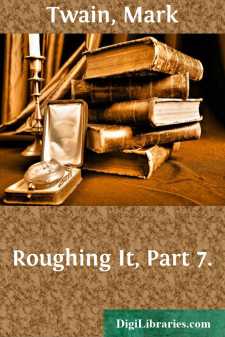Biography & Autobiography
- Adventurers & Explorers 15
- Artists, Architects, Photographers 16
- Business 2
- Composers & Musicians 14
- Criminals & Outlaws 5
- Editors, Journalists, Publishers 6
- Educators 1
- Entertainment & Performing Arts 3
- General 73
- Health, Exercise & Fitness 1
- Historians 3
- Historical 83
- Law Enforcement 1
- Lawyers & Judges 3
- Literary
- Medical 7
- Military 48
- Naturalists, Gardeners, Environmentalists 8
- Personal Memoirs & Diaries 226
- Philosophers 3
- Political 9
- Presidents & Heads of State 38
- Religious 38
- Rich & Famous 27
- Scientists 13
- Women 31
Literary Books
Sort by:
CHAPTER I. ANCESTRY, PARENTAGE, AND CHILDHOOD. Sir Walter Scott was the first literary man of a great riding, sporting, and fighting clan. Indeed, his father—a Writer to the Signet, or Edinburgh solicitor—was the first of his race to adopt a town life and a sedentary profession. Sir Walter was the lineal descendant—six generations removed—of that Walter Scott commemorated in The Lay of the Last...
more...
by:
Francis Thompson
SHELLEY: AN ESSAY The Church, which was once the mother of poets no less than of saints, during the last two centuries has relinquished to aliens the chief glories of poetry, if the chief glories of holiness she has preserved for her own. The palm and the laurel, Dominic and Dante, sanctity and song, grew together in her soil: she has retained the palm, but forgone the laurel. Poetry in its widest...
more...
CHAPTER I THE FRENCH REVOLUTION IN ENGLAND The history of the French Revolution in England begins with a sermon and ends with a poem. Between that famous discourse by Dr. Richard Price on the love of our country, delivered in the first excitement that followed the fall of the Bastille, and the publication of Shelley's Hellas there stretched a period of thirty-two years. It covered the dawn, the...
more...
by:
Sydney Waterlow
Chapter I. Shelley and His Age In the case of most great writers our interest in them as persons is derived from out interest in them as writers; we are not very curious about them except for reasons that have something to do with their art. With Shelley it is different. During his life he aroused fears and hatreds, loves and adorations, that were quite irrelevant to literature; and even now, when he...
more...
Samuel Butler: A Sketch Samuel Butler was born on the 4th December, 1835, at the Rectory, Langar, near Bingham, in Nottinghamshire. His father was the Rev. Thomas Butler, then Rector of Langar, afterwards one of the canons of Lincoln Cathedral, and his mother was Fanny Worsley, daughter of John Philip Worsley of Arno’s Vale, Bristol, sugar-refiner. His grandfather was Dr. Samuel Butler, the...
more...
by:
Mark Twain
CHAPTER LXXI. At four o'clock in the afternoon we were winding down a mountain of dreary and desolate lava to the sea, and closing our pleasant land journey. This lava is the accumulation of ages; one torrent of fire after another has rolled down here in old times, and built up the island structure higher and higher. Underneath, it is honey-combed with caves; it would be of no use to dig wells in...
more...
by:
Mark Twain
CHAPTER LXI. One of my comrades there—another of those victims of eighteen years of unrequited toil and blighted hopes—was one of the gentlest spirits that ever bore its patient cross in a weary exile: grave and simple Dick Baker, pocket-miner of Dead-House Gulch.—He was forty-six, gray as a rat, earnest, thoughtful, slenderly educated, slouchily dressed and clay- soiled, but his heart was finer...
more...
by:
Mark Twain
CHAPTER LI. Vice flourished luxuriantly during the hey-day of our "flush times." The saloons were overburdened with custom; so were the police courts, the gambling dens, the brothels and the jails—unfailing signs of high prosperity in a mining region—in any region for that matter. Is it not so? A crowded police court docket is the surest of all signs that trade is brisk and money plenty....
more...
by:
Mark Twain
CHAPTER XLI. Captain Nye was very ill indeed, with spasmodic rheumatism. But the old gentleman was himself—which is to say, he was kind-hearted and agreeable when comfortable, but a singularly violent wild-cat when things did not go well. He would be smiling along pleasantly enough, when a sudden spasm of his disease would take him and he would go out of his smile into a perfect fury. He would groan...
more...
by:
Mark Twain
CHAPTER XXXI. There were two men in the company who caused me particular discomfort. One was a little Swede, about twenty-five years old, who knew only one song, and he was forever singing it. By day we were all crowded into one small, stifling bar-room, and so there was no escaping this person's music. Through all the profanity, whisky-guzzling, "old sledge" and quarreling, his monotonous...
more...











